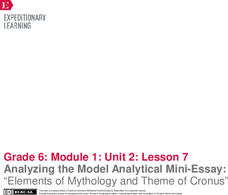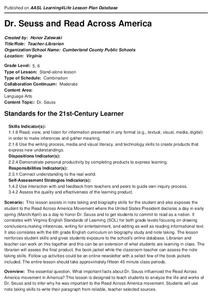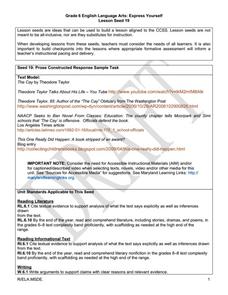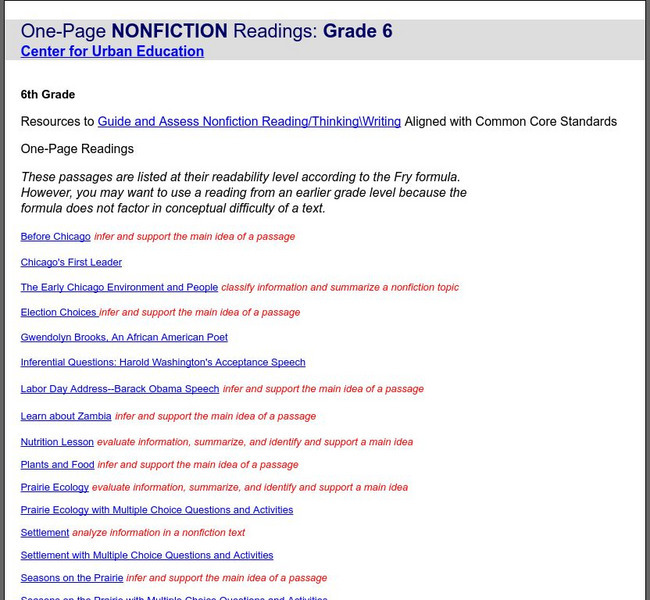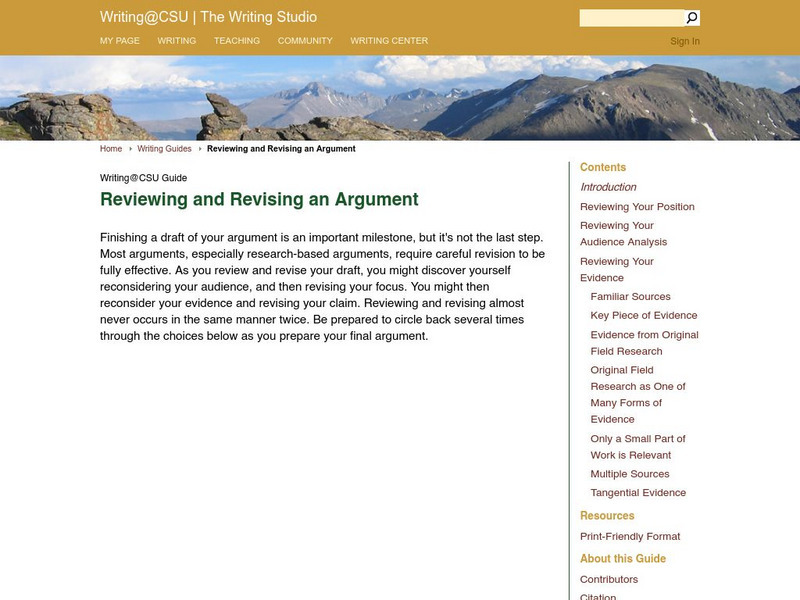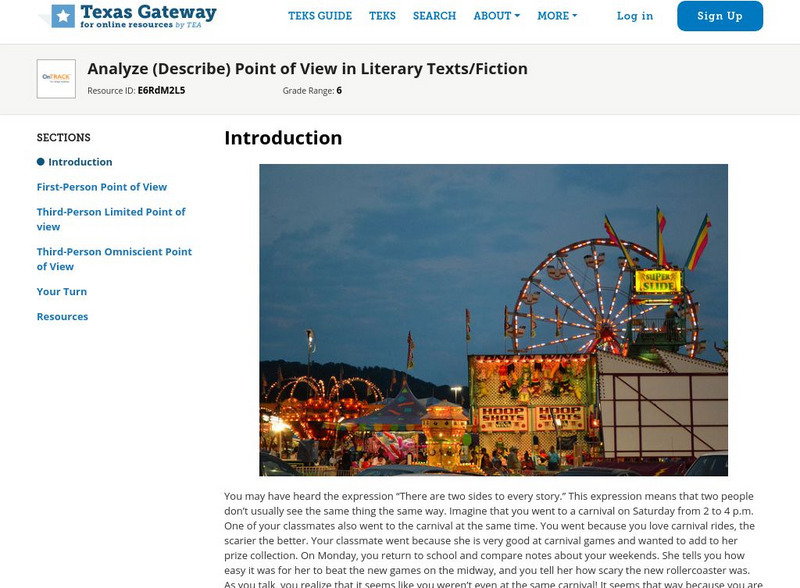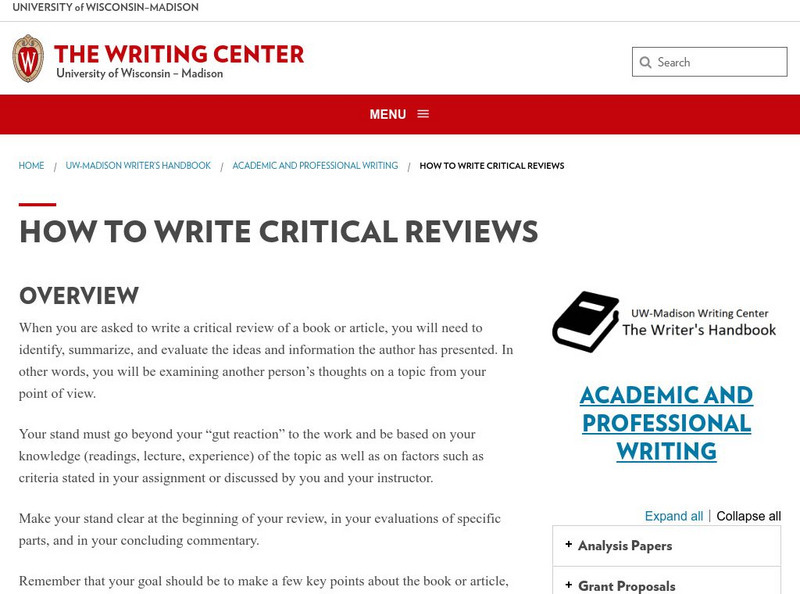EngageNY
Planning for Writing: Revisiting “Key Elements of Mythology” and Determining a Theme in the Myth of Cronus
Refresh my memory please. Scholars quickly read over the Myth of Cronus to refresh their memories of the story. They then get in groups and write parts of the myth on sticky notes that relate to the elements of mythology, sticking their...
EngageNY
Drafting an Analytical Mini-Essay: Using Partner Talk and Graphic Organizers to Guide Thinking
Moving on up ... Scholars take a look at how the author of the model essay Elements of Mythology and Theme of Cronus moved up in the writing process from a graphic organizer to an essay. After walking through the writing process of the...
EngageNY
Analyzing the Model Analytical Mini-Essay: “Elements of Mythology and Theme of Cronus”
It's time to make a claim. Scholars learn what it means to make a claim by first looking at a model analytical mini-essay to determine how the author relayed ideas. Pupils then work with partners to discuss how the author might have...
EngageNY
Connecting Literary and Informational Texts: Cronus and “The Key Elements of Mythology”
Is there a connection? Scholars work to make connections between Myth of Cronus and The Key Elements of Mythology. First, they circle important words in the text and look for similarities. They then revisit the concept of theme and...
EngageNY
End of Unit 1 Assessment: Drawing Evidence from Text: Written Analysis of How Percy’s Experiences Align with “The Hero’s Journey”
Do your best on the test! Readers finish up by completing the end of the unit assessment. Using the assessment, writers describe how Percy's experiences in The Lightning Thief align to four parts of The Hero's Journey. After completing...
EngageNY
Writing with Evidence: Percy and the Hero’s Journey (Chapter 7)
Read, set, write! Scholars participate in the first fully independent writing task of the unit as they write about how Percy’s experience in The Lightning Thief aligns with The Hero’s Journey. To begin their writing, they complete a...
EngageNY
Selecting Evidence: “The Hero’s Journey” and The Lightning Thief (Chapter 6)
Take a closer look. Scholars learn how to read closely using chapter six in The Lightning Thief. While reading, they write the gist of paragraphs on sticky notes and stick them in the book. They then answer text-dependent questions over...
Louisiana Department of Education
Out of the Dust
The Grapes of Wrath may be the most famous novel set during the Dust Bowl, but what other stories cover the same time? The unit focuses on the Karen Hesse novel Out of the Dust. Learners keep a timeline of the Dust Bowl, maintain a...
Louisiana Department of Education
Hatchet
Accompany a novel study of Hatchet by Gary Paulson with a unit consisting of 16 lessons focused on physical and emotional survival. Reading the story along with a variety of informational texts, scholars compare and contrast reading...
Curated OER
Dr. Seuss and Read Across America
What important facts about Dr. Seuss influenced the Read Across America movement...? This is the driving question of a research project that requires scholars to find information about Dr. Seuss' life and work. Class...
Curated OER
Express Yourself Lesson Seed 19: Synthesis
Wrap up your unit on The Cay with an engaging argumentative writing assignment. Writers must decide if they believe The Cay should be banned. The resource includes links to several articles, which have been addressed and examined in...
Curated OER
A Way with Words
How do facts and opinions impact the news? After reading "How to Cover a War" from the New York Times, middle schoolers evaluate the claims in the article. They also consider the media's responsibilities in reporting during wartime....
Curated OER
Test-Driving Computers
A new form of standardized testing? Learners evaluate arguments for and against the use of computer-based standardized tests in schools. They express their views through discussion and explore the views of others through the creation and...
Curated OER
Harvest the Wind
Wind is a natural resource available around the world. Help your pupils appreciate the power and importance of wind by researching wind farms, making pinwheels, and designing windmills.
University of Glasgow
University of Glasgow: Critical Reviews
This site is designed to be used by psychology students at the university level, but it provides helpful instruction for anyone writing critical reviews of non-fiction. Instruction includes everything from how to be critical to...
Library of Congress
Loc: Main Reading Room: Literary Criticism
This is an annotated list of reference websites for literary criticism.
Polk Brothers Foundation Center for Urban Education at DePaul University
De Paul University: Center for Urban Education: One Page Nonfiction Readings: Grade 6
This site contains 17 nonfiction articles that are appropriate for students with a 6th grade reading level, as measured by the Fry Formula. Questions for each passage are provided. Graphic organizers are available for these copyrighted...
Polk Brothers Foundation Center for Urban Education at DePaul University
Depaul University: Center for Urban Education: Guide/assess Nonfiction Reading
This site contains 47 one-page guided writing and reading guides and assessments.The reproducibles are copyrighted materials but may be copied and used for educational purposes.
Colorado State University
Colorado State Writing Center: Reviewing and Revising an Argument
An excellent guide to help the writer review a composition to see if their position has been fully supported by evidence and to analyze the perspective of the anticipated audience. Follow the links on the right to access all of the...
University of Sydney (Australia)
University of Sydney: The Write Site: Evaluating Your Evidence
This essay resource teaches students how to select the type of evidence that best lends weight and credibility to their topics and how to organize the evidence effectively. A chart is provided as a quick reference. Click on pages 2-4 at...
Texas Education Agency
Texas Gateway:analyze (Describe) Point of View in Literary Texts/fiction
In this learning module, students will learn to analyze fiction told from the first-person, third-person limited, and third-person omniscient points of view.
Polk Brothers Foundation Center for Urban Education at DePaul University
De Paul University: Center for Urban Education: Use Evidence to Show How a Writer Supports
This Center for Urban Education resource provides a downloadable graphic organizer for students to use when analyzing the evidence that authors use to support a claim. RI.9-10.5 ideas/claims developed. CCSS.ELA-Literacy.CCRA.R.8
Better Lesson
Better Lesson: Analyzing Text Complexity of Non Fiction Sources
This activity will help students read and comprehend nonfiction, specifically biographies, through determining criteria for text complexity. Included is a PDF and Smart Notebook titled Determining Text Complexity, and an example of a...
University of Wisconsin
University of Wisconsin Madison: Writing Center: How to Write Critical Reviews
This site provides the viewer with a step-by-step guide to writing critical reviews for non-fiction works. Its steps include analyzing the assignment as well as writing a clear introduction, body, and conclusion. Links to other writing...




